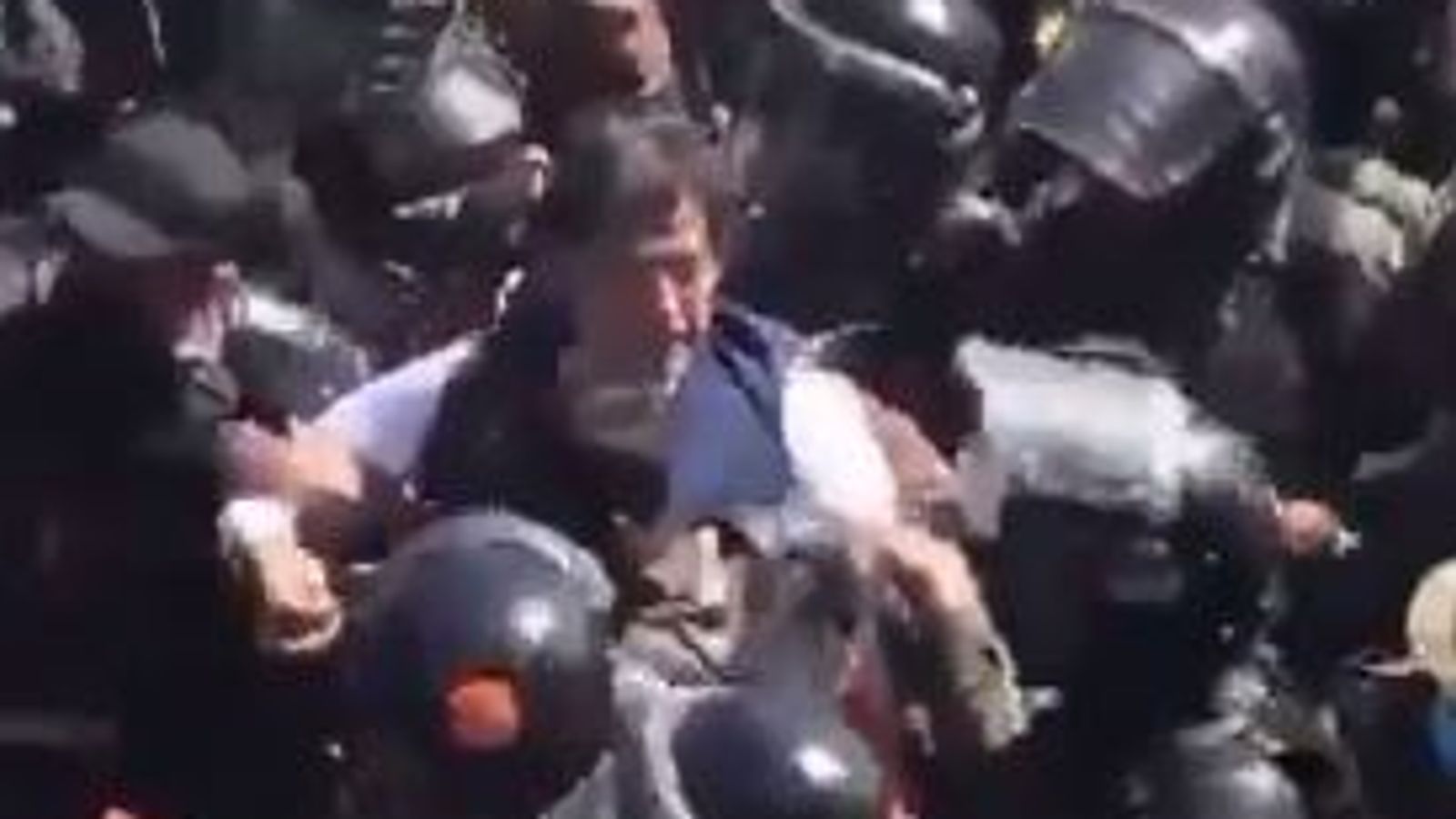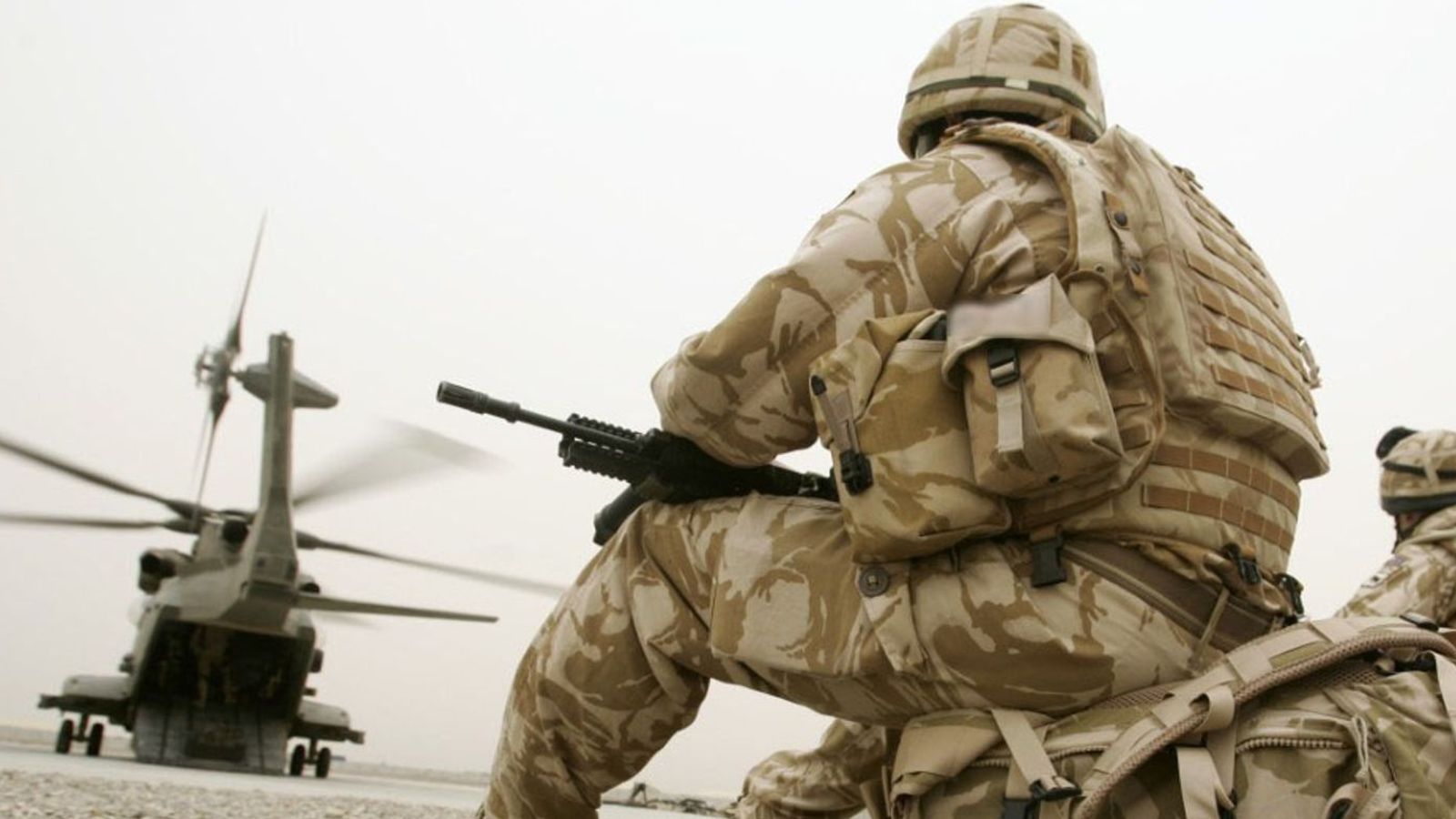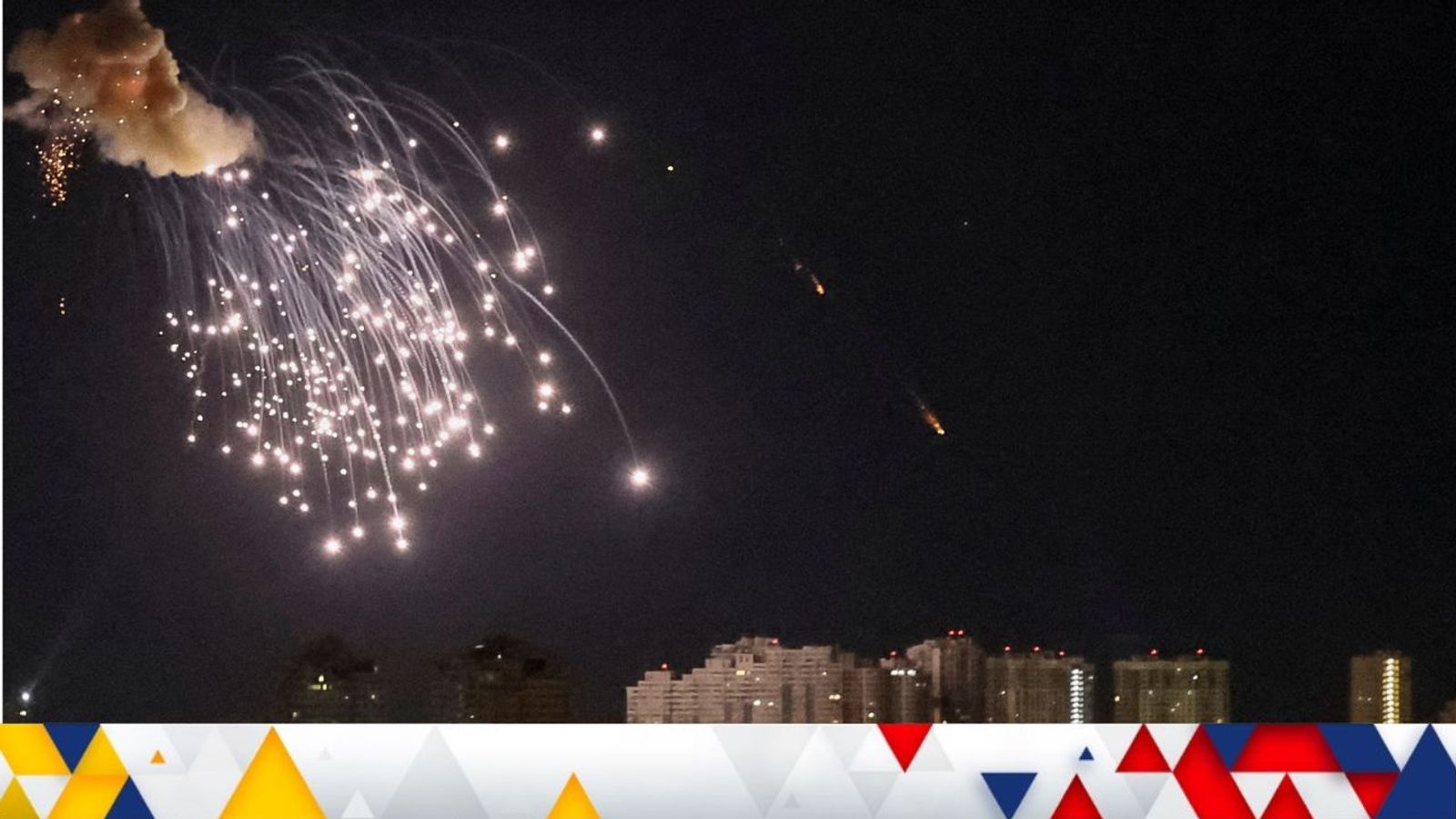Sudan’s top general has declared a state of emergency and dissolved the country’s transitional government – as the prime minister’s office said a “complete coup” was under way.
Sudan’s interim prime minister, Abdalla Hamdok, and at least five senior officials are understood to have been detained by military forces.
Thousands have taken to the streets in protest in the capital, Khartoum.
General Abdel Fattah al Burhan, head of the Sovereign Council, said in a televised address that he was dissolving the power-sharing body as well as the government.
He said the military was intervening due to arguments among political factions and that a new technocrat government would steer the country towards elections.
Mr Hamdok’s office said on Facebook that he and his wife had been detained early on Monday in a “complete coup”.
Sudan‘s information ministry said he had been taken to an undisclosed location after refusing to support the military’s actions.
In a statement to Reuters, it called it a “coup attempt”.
The country’s main pro-democracy group, the Sudanese Professionals Association (SPA), has called on people to resist.
“We urge the masses to go out on the streets and occupy them, close all roads with barricades, stage a general labour strike, and not to cooperate with the putschists and use civil disobedience to confront them,” it said.
Thousands in Khartoum and twin city Omdurman responded, with video appearing to show protesters blocking streets and setting tyres on fire as security forces used tear gas.
Chants of “the people are stronger, stronger” and “retreat is not an option!” could be heard.
The information ministry said some people had faced gunfire near the military’s headquarters in Khartoum.
Officials said others being held included industry minister Ibrahim al Sheikh, information minister Hamza Baloul, Mohammed al Fiky Suliman, a member of the ruling Sovereign Council, and Faisal Mohammed Saleh, a media adviser to Mr Hamdok.
Ayman Khalid, the governor of the state containing Khartoum, was also arrested, according to his office’s Facebook page.
Significant internet and mobile phone outages have also been reported in the country.
The arrests come after weeks of rising tensions between Sudan’s civilian and military leaders following a failed coup attempt in September.
A coup would be a major setback for Sudan, which has struggled with a move to democracy since protests ended Omar al Bashir’s long reign two years ago.
Civilian and military groups have been sharing power since then and elections were due to be held by the end of 2023.
Leadership of the joint Sovereign Council was meant to be passed from the military to a civilian figure in the coming months.
Sudan remains in the grip of an economic crisis, with high inflation and shortages of basic goods. However, there were signs international aid was starting to help.
Josep Borrell, the EU foreign affairs chief, tweeted his “utmost concern” over the situation, while US special envoy for the Horn of Africa Jeffrey Feltman said Washington was “deeply alarmed”.
AU Commission Chair Moussa Faki Mahamat called for Sudan’s political leaders to be released and human rights upheld.
The United Nations and Arab League also expressed concern.




